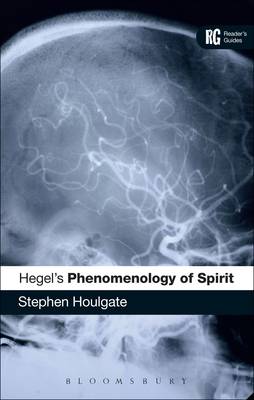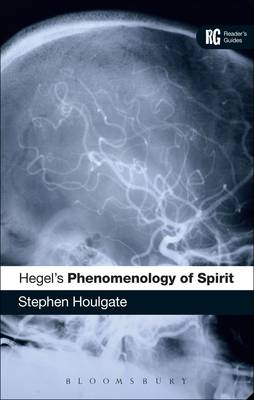
Je cadeautjes zeker op tijd in huis hebben voor de feestdagen? Kom langs in onze winkels en vind het perfecte geschenk!
- Afhalen na 1 uur in een winkel met voorraad
- Gratis thuislevering in België vanaf € 30
- Ruim aanbod met 7 miljoen producten
Je cadeautjes zeker op tijd in huis hebben voor de feestdagen? Kom langs in onze winkels en vind het perfecte geschenk!
- Afhalen na 1 uur in een winkel met voorraad
- Gratis thuislevering in België vanaf € 30
- Ruim aanbod met 7 miljoen producten
Zoeken
Omschrijving
Hegel's Phenomenology of Spirit is probably his most famous work. First published in 1807, it has exercised considerable influence on subsequent thinkers from Feuerbach and Marx to Heidegger, Kojève, Adorno and Derrida. The book contains many memorable analyses of, for example, the master / slave dialectic, the unhappy consciousness, Sophocles' Antigone and the French Revolution and is one of the most important works in the Western philosophical tradition. It is, however, a difficult and challenging book and needs to be studied together with a clear and accessible secondary text. Stephen Houlgate's Reader's Guide offers guidance on:
Philosophical and historical context
Key themes
Reading the text
Reception and influence
Further reading
Philosophical and historical context
Key themes
Reading the text
Reception and influence
Further reading
Specificaties
Betrokkenen
- Auteur(s):
- Uitgeverij:
Inhoud
- Aantal bladzijden:
- 224
- Taal:
- Engels
- Reeks:
Eigenschappen
- Productcode (EAN):
- 9780826485113
- Verschijningsdatum:
- 10/01/2013
- Uitvoering:
- Paperback
- Formaat:
- Trade paperback (VS)
- Afmetingen:
- 137 mm x 211 mm
- Gewicht:
- 258 g

Alleen bij Standaard Boekhandel
+ 118 punten op je klantenkaart van Standaard Boekhandel
Beoordelingen
We publiceren alleen reviews die voldoen aan de voorwaarden voor reviews. Bekijk onze voorwaarden voor reviews.









